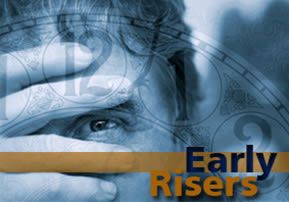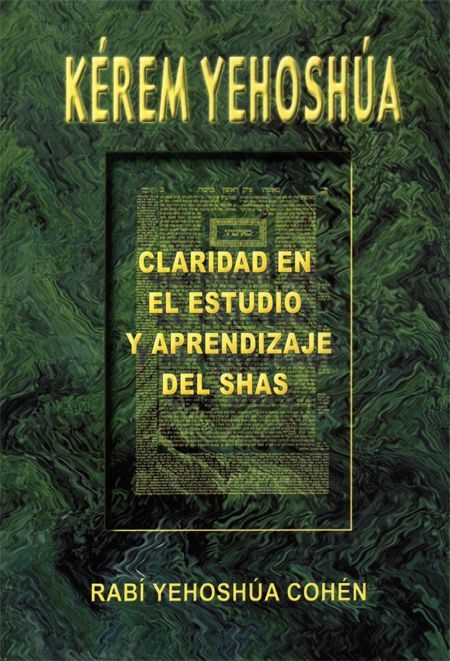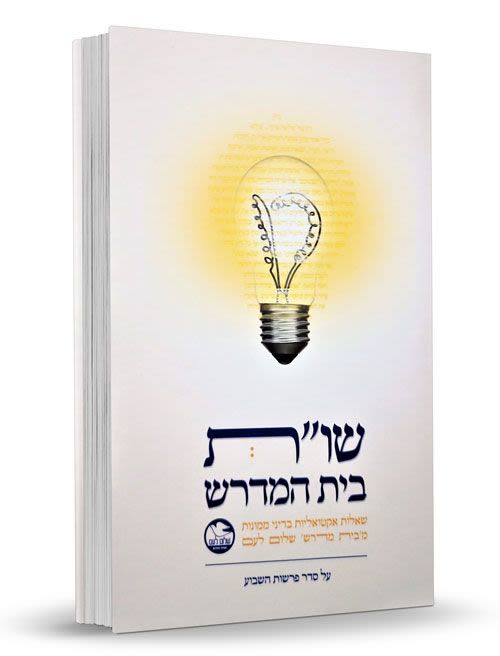
The Breslever Daily Agenda, Part 2
Breslever Chassidim are early risers. They are also devoted Torah learners who speak to Hashem every single day, as we see in part two of the Breslever Daily Agenda.

The Breslever Daily Agenda, Part 2
These are the second nine of the twenty-seven pillars of Jewish life based on the teachings of the Holy Rebbe, the Tzaddik, Foundation of the World, the Hidden Light, RABBI NACHMAN OF BRESLEV, may his holy memory intercede in our behalf, and on the teachings of his Holy Disciple, the Genius and Incredible Light to whom no secret remained hidden, RABBI NATAN OF BRESLEV, of saintly and blessed memory. This was written and compiled by RABBI YITZCHAK BREITER, of saintly and blessed memory, one of the great Breslever Chassidim who died a martyr’s death in nightmare of the Nazi holocaust, may Hashem avenge his blood.
 10. The Morning Prayers
10. The Morning Prayers
Pray early in the morning — slowly and with feeling, just as you would say the other prayers. Try not to interrupt yourself in the middle, and avoid wandering about while you pray. Use a siddur because it is much easier this way, and don’t forget to answer “amen” and the other responses when you are praying with a minyan (quorum of ten men required for public prayer, Kaddish, Kedushah, and Borchu) and remember to answer with feeling! This will help the whole world to merit the hidden light from the seven days of creation, which shines forth in a new way every day. Thus the meaning of the verse; “A new light will enlighten Tzion.” [The morning prayers]
11. Jewish Law
Make it an inflexible obligation upon yourself to learn at least one law from the codes every day of your life. This practice will completely subdue all shades of disbelief and strife — whether spiritual or physical, from both yourself and the rest of the world. Study the Codes of Law (Shulchan Aruch) in order from the beginning. If you aren’t learned enough to study the large editions with all of the codifiers, then learn the more basic versions, or those in English.
12. Speaking With G-d
Encourage yourself with whatever means you can to be alone with G-d and to talk with Him about whatever is on your mind and heart. Strive to speak with Him in this simple way for at least an hour every day.
Tell Him about all of your adventures and confess your sins and transgressions to Him — whether planned or accidental. Converse with Him just as you would speak with any other friend. Tell Him of all your distress and suffering. Pray for your family and for all of our brothers around the world. Don’t be afraid to extend the conversation; mention all the fascinating details and point out all of your claims well. Then yearn and beg G-d to acknowledge your prayers and fulfill them — all in order to come close to Him. G-d says; “Open your mouth wide and I will fill it.” [Psalms 81:11]
Cry and sob too, and beg G-d to take pity on you. Thank Him for all the great kindness He has shown you — in a voice of song and praise. Afterward, ask all of your desires of Him, whether spiritual or earthly, and have faith, for this conversation brings G-d great pleasure — even if it comes from the most insignificant of people. It is even more prized than the praise of the angels who inhabit the most ineffable spiritual worlds. If you cannot find the words to begin a conversation, then at least realize that your preparation and yearning, and the struggle to find words is all very precious to G-d. Even if you are unable to utter more than a single word the entire time you are nonetheless absorbed in one of the most worthy of tasks.
13. Rabbi Nachman’s Teachings
Try to learn something from Rabbi Nachman’s works every day, because this will connect you to his very own ideas and outlook. His teachings reveal the very foundations of the Torah, and will give you tremendous power to continue the climb towards piety. Your individual study will influence the entire world with the inspiration to repent and to also renew themselves to search after holiness. This is true of all mitzvot, especially that of learning Torah, but Rabbi Nachman’s interpretations and teachings have the most influence of all.
14. Psalms
Say at least ten Psalms every day, since any ten will cause wondrous spiritual corrections. Strive to find your own life story in the Psalms as you say them, especially in the verse I praise G-d. That is, imagine yourself as King David, and not merely as a narrator of his words.
15. Likutei Tefillot
Say prayers from this holy work every day, and make up your own prayers, also. For instance, pray that you merit fulfilling the advice of whatever Torah you learn. This is what Rabbi Nachman meant when he said that a person should turn Torah into prayer. Such practice brings G-d tremendous pleasure, and every word will help you.
16. Structured Study
Establish set times to learn Torah, and study with great joy. Don’t interrupt your learning for anything that isn’t of the utmost importance. Also, learn with the intention that the Torah you learn help you reach perfect faith in G-d. Search out advice revealing better ways to serve Him. Explore new ideas and derive your own novelties of thought from your study — based on Rabbi Nachman’s introductions if you can, since this will bring you very close to G-d. In addition, it will also inspire many of our distant brothers to seek after G-d.
17. Eating
Eat slowly and with manners. Avoid anger and unnecessary talk. Learn Torah at the table if you can, and try to contemplate holy thoughts while you eat. Say the Grace After Meals with joy and feeling.
Eating gives extra strength to the body as opposed to the sublime powers of the soul, so in order to counter this effect, inspire yourself with yearning for G-d and with ideas of how to come even closer to Him while reciting the Grace After Meals. Do this with life’s other pleasures as well. Have intention that whatever act you are involved in be done because it is G-d’s Will, and that the enjoyment cause G-d to unite with the Divine Presence.
18. Business Affairs
Carry out your work and money making affairs with faith in G-d. This will help you merit a greater understanding of His direct involvement and supervision over the world.
Develop a strong belief in the fact that income is not governed by natural law or luck, but solely by G-d’s Will. G-d can provide for all of us without any of our efforts, just as He did for our ancestors in the desert. The reason He desires us to work and toil is to see whether or not we will continue to serve Him when it appears that sustenance and wealth come independently of His help — by our own sweat and toil, G-d forbid. Actually, our toil only inspires G-d to grant us a livelihood, and the essential work rests on Him.
To be continued.
***
Breslev Israel extends sincere appreciation to Rabbi Benyamin Pilant of http://www.breslov.com/














Tell us what you think!
Thank you for your comment!
It will be published after approval by the Editor.